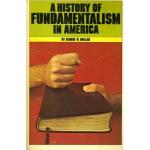Chapter 6 (pp. 51-58) of my book, Reflections on Radical Catholic Reactionaries (December 2002; revised second edition: 17 August 2013; slightly revised again in November 2023 for the purpose of the free online version). Anyone who reads this book should first read the following three introductory articles, in order to fully understand the definitions and sociological categories I am employing:
Introduction (on the book page)
Definitions: Radical Catholic Reactionaries, Mainstream “Traditionalists,” and Supposed “Neo-Catholics” [revised 8-6-13]
Radical Catholic Reactionaries: What They Are Not [9-28-21]
If you’re still confused and unclear as to my meanings and intent after that, read one or more of these articles:
Rationales for My Self-Coined Term, “Radical Catholic Reactionaries” [8-6-13]
My Coined Term, “Radical Catholic Reactionary”: Clarifications [10-5-17]
Clarifying My Coined Term, “Radical Catholic Reactionary” [4-3-20]
This book is modeled after the method and structure of the French mathematician and Catholic apologist Blaise Pascal’s classic, Pensées (“thoughts”). Catholic apologist and philosopher Peter Kreeft described this masterpiece as “raw pearls” and “more like ‘sayings’ than a book . . . ‘Sayings’ reflect and approximate the higher, the mode of Christ and Socrates and Buddha. That’s why Socrates is the greatest philosopher, according to St. Thomas (S.T. III, 42, 4).”
*****
- It’s a sad reality that many baptized Catholics cannot bring themselves to submit to the spiritual wisdom of Holy Mother Church. I grew out of this resistance, in my own spiritual odyssey, as I converted from evangelical Protestantism to Catholicism. I didn’t expect to see it again within the Church. I did, I suppose, expect it from liberals (as I was well acquainted with Protestant liberalism), but not from radical Catholic reactionaries, who claim to be the exemplary legatees of historic Catholic orthodoxy. Once again, truth is stranger than fiction . . .
- A person who rejects even one dogma of the faith loses the supernatural virtue of faith (as the late Fr. John A. Hardon, S. J. often stated, following St. Thomas Aquinas). Since reactionaries pick and choose what they like, just as their modernist “cafeteria Catholic” friends do (and like Protestants do), I must conclude that they, too, have departed from the Catholic formal principle of authority at that point. The reactionary dilemma is the espousal of the notion that a legitimate ecumenical council can so radically depart from the faith. They are betwixt and between . . .
- Reactionaries disagree with what the Church has solemnly decreed in ecumenical council to be legitimate tradition. This is assuredly private judgment, and no different from the individualistic private judgment worldview of Protestantism (in that respect). A big change in principle takes place when one becomes a Catholic. St. Vincent of Lerins, in the very same context of his famous dictum concerning “that which was believed always and everywhere,” also dealt explicitly with development of doctrine, a fact seemingly known by few who cite him for reactionary purposes.
- Reactionaries argue that conscience has supreme authority over the magisterium of the Church and the infallible papacy. This is more Protestantism or early Lutheranism. The Catholic, Newmanian view of a properly informed conscience, on the other hand, is that it must be formulated and grounded within the mind and guidance of the Church, and can be opposed to it only in the most extreme circumstances. Reactionary dissent and disobedience violates this orthodox understanding right and left, having adopted the Protestant principle of authority (private judgment) and also the modernist principle (arbitrary selectivity). Reactionaries wrongly disobey the Church (falsely believing that it is in error, when it is not), and accept the faith-destroying notion of defectibility (or something close to it). This is an utter perversion of the orthodox Catholic notion of conscience.
- I deny the premise that the layman can sit and judge ecumenical councils. The orthodox Catholic is bound by authority; we are not at liberty to judge a council. This was dealt with in the scenario of Luther at the Diet of Worms in 1521. Yet some Catholics have adopted his outlook with regard to the fallibility of ecumenical councils (as ratified by popes). This is why we have Church authority and popes in the first place. We submit to them, not some self-anointed reactionary or renegade canon lawyer, or whomever else is brought forth as some sort of “magisterial expert.” That ultimately reduces to the Protestant principle of private judgment.
- Reactionaries selectively choose which papal words they will heed and which they will reject; this is nonsensical (literally). The pick-and-choose mentality is a major problem. The heretics pick and choose (as Cardinal Newman would assert, generalizing and making the analogy). Catholics accept what their lawfully ordained authorities proclaim.
- Luther had to have it his own way, as did Calvin and Zwingli and Henry VIII. The Catholic, on the other hand, humbly bows to the will of Holy Mother Church, and trusts that God is in control, despite all.
- We (the traditional, orthodox Church) didn’t choose the current onslaught with which we have to deal. But God knew all about it, and He has a plan to defeat it, and He will communicate that plan to the people who need to know it in order to guide the Church to do His will in overcoming it (as He promised). We believe this in faith. If I didn’t believe this, I would be in some small, strict, “traditional” Protestant sect that had no “liberals” in it at all (but, in fact, as many “popes” as members, each determining his own theology). The Bible, however, tells me that the wheat and the tares grow up together in the Church, so this doesn’t surprise or shock or scandalize me. The Protestant sectarian (or literally schismatic reactionaries who have joined some split-off “Catholic” group) response of leaving those folks and forming a new church of “perfect little Christians” is no solution because it is escapist and exclusivist (and unbiblical). The true Church reaches out to humanity at large. It’s a city on a hill, not a bunker under a hill; the “salt of the earth” – not the salt of a few elitist initiates.
- The faithful are not expected to know all the ins and outs of complicated canon law.. They are expected to accept the teachings of the Church at the highest level and give assent to them: internally as well as externally. It seems to me that acknowledging the binding character of the council would end many of the severe criticisms of the decrees on ecumenism and other religions, religious freedom, etc. “Authoritative” ought to be sufficient to shut the mouths of dissenting Catholics. But it’s not. It’s another instance of the inherent equivocations of the reactionary position.
- The late Fr. John A. Hardon, S. J., one of the leading and most widely respected catechists in the world; advisor to Popes St. Paul VI and Pope St. John Paul II, and catechist of St. Teresa of Calcutta’s Missionaries of Charity (I knew him personally), used to frequently say: “to doubt even one received dogma of the Catholic Church is to lose the supernatural virtue of faith.” He was referring primarily to Catholics, who are bound to accept all the Church’s teachings, as a matter of routine obedience and intellectual honesty. With non-Catholics, there is always the matter of how much they know, or don’t know, about Church teaching, and this reduces culpability significantly. Obviously there are many people who couldn’t care less what the Catholic Church teaches. But a Catholic who professes to be obedient (verbally, or indirectly, by membership) to that authority is in a different category. Many Catholics, unfortunately, adopt a mentality of “pick-and-choose,” with regards to what Catholic teachings they will accept or reject. Catholics are obliged (by definition) to accept all dogmatic pronouncements of the Church and the entire ordinary magisterium, with not only external but also internal assent. This itself is dogmatic teaching. Whoever denies this, becomes, ipso facto, a “liberal Catholic.” That is the inexorable consequence of taking such a position within the Catholic dogmatic framework. Granted, we all learn more and more as we go along, but in any event, this is the Catholic position.
- The First Vatican Council (1870) defined the gift of faith:
Faith is a supernatural virtue whereby, under the inspiration and assistance of grace, we believe those things revealed by God to be true, not because the intrinsic evidence of those things has been perceived by the natural light of reason, but because of the authority of God Himself revealing who can neither deceive nor be deceived.
All those things are to be believed, on divine and catholic faith, which are contained in the written and unwritten word of God, and which are proposed by the Church as divinely revealed, whether this is accomplished through her solemn pronouncements (ex cathedra definitions), or through her ordinary and universal teaching power.
Note that no distinction is made between “solemn pronouncements” and “ordinary universal teaching power” of the Church, nor is one categorized as infallible and the other non-infallible.
- Pope Leo XIII expressed a similar idea in his encyclical Satis Cognitum (“The Unity of the Church,” June 20, 1896):
If it be certain that something be revealed by God, and this is not believed, then nothing whatever is believed by divine faith . . . He who dissents even in one point from divinely revealed truths absolutely rejects all faith, since he thereby refuses to honor God as the supreme truth.
- St. John Henry Cardinal Newman also taught this:
This is what faith was in the time of the Apostles, as no one can deny; and what it was then, it must be now, else it ceases to be the same thing . . . Men were told to submit their reason to a living authority. Moreover, whatever an Apostle said, his converts were bound to believe; when they entered the Church, they entered it in order to learn. The Church was their teacher; they did not come to argue, to examine, to pick and choose, but to accept whatever was put before them. No one doubts, no one can doubt this, of those primitive times. A Christian was bound to take without doubting all that the Apostles declared to be revealed; if the Apostles spoke, he had to yield an internal assent of his mind; it would not be enough to keep silence, it would not be enough not to oppose: it was not allowable to credit in a measure; it was not allowable to doubt. No; if a convert had his own private thoughts of what was said, and only kept them to himself; if he made some secret opposition to the teaching, if he waited for further proof before he believed it, this would be a proof that he did not think the Apostles were sent from God to reveal His will; it would be a proof that he did not in any true sense believe at all. Immediate, implicit submission of the mind was, in the lifetime of the Apostles, the only, the necessary token of faith; then there was no room whatever for what is now called private judgment.
No one could say: “I will choose my religion for myself; I will believe this, I will not believe that; I will pledge myself to nothing; I will believe just as long as I please, and no longer; what I believe today I will reject tomorrow, if I choose. I will believe what the Apostles have as yet said, but I will not believe what they shall say in time to come.” No; either the Apostles were from God, or they were not; if they were, everything that they preached was to be believed by their hearers; if they were not, there was nothing for their hearers to believe. To believe a little, to believe more or less, was impossible; it contradicted the very notion of believing: if one part was to be believed, every part was to be believed; it was an absurdity to believe one thing and not another; for the word of the Apostles, which made the one true, made the other true too; they were nothing in themselves, they were all things, they were an infallible authority, as coming from God. The world had either to become Christian, or to let it alone; there was no room for private tastes and fancies, no room for private judgment. (“Faith and Private Judgment,” from Discourses to Mixed Congregations, 1849)
- St. Thomas Aquinas concurs:
If, of those things taught by the Church (as divinely revealed), one holds what he chooses to hold, and rejects what he chooses to reject, he no longer adheres to the teaching of the Church as an infallible guide, but to his own will. Such a one may accept other teachings of the Church, but he does so not out of divine faith, but only by a kind of opinion in accordance with his own will. (Summa Theologica, II II, 5, 3)
- Reactionaries – like Luther — have substituted what they falsely think is a “blind obedience” for a blind faith in the erroneous reactionary assumption that one can pick and choose what they like from an ecumenical council.
- If ecumenical councils were to err, the Church would not have certainty and truth, as brought about by the working of the Holy Spirit — expressly promised by our Lord Himself. And, furthermore, Martin Luther would have been right at the Diet of Worms in 1521. Reactionaries, then, have no argument to bring against his central thesis, and basis for his rebellion: that “popes and Councils can and do err.” Reactionaries (if they applied their principles consistently) would have been in his cheerleading section. This seed of defectibility made it thinkable for the so-called “Reformers” to set up rival churches and versions of Christianity over against the so-called “Babylonian Captivity.”
- I had the “freedom” to accept all sorts of errors in various denominations as a Protestant. I could essentially construct my own worldview, with myself as “pope” and arbiter – sole determinant of all “doctrinal” decisions. I decided what was true and good and proper, and then sought to consistently live by it. Then by the grace of God I entered the Catholic Church, only to discover that there are many people in it who want to selectively accept this and that, according to their own whims and fancies. Catholics do this, yet they don’t seem to realize the Protestant pedigree and intrinsically self-defeating nature involved.
- One of the many problems I have with reactionaries is the scenario of every Tom, Dick, and Harry with a picture of Pope St. Pius X in one hand, and a dog-eared copy of Denzinger in the other, going around judging (nay, trashing) the pope or an ecumenical council, as if they were some sort of expert . . . This is self-importance elevated to the level of the profoundly ridiculous; almost grotesque or surreal. And they are blind to this obvious reality, which makes it all the more frightening. One can do that in Protestantism, as everyone is their own pope, when it comes down to it. But to attempt it in Catholicism is patently and manifestly absurd.
*
*****
*
Photo credit: reverent (3-10-15) [Pixabay / Pixabay Content License]
*
*
Summary: Ch. 6 of my book, Reflections on Radical Catholic Reactionaries (December 2002; slightly revised in November 2023 for the purpose of the free online version).













